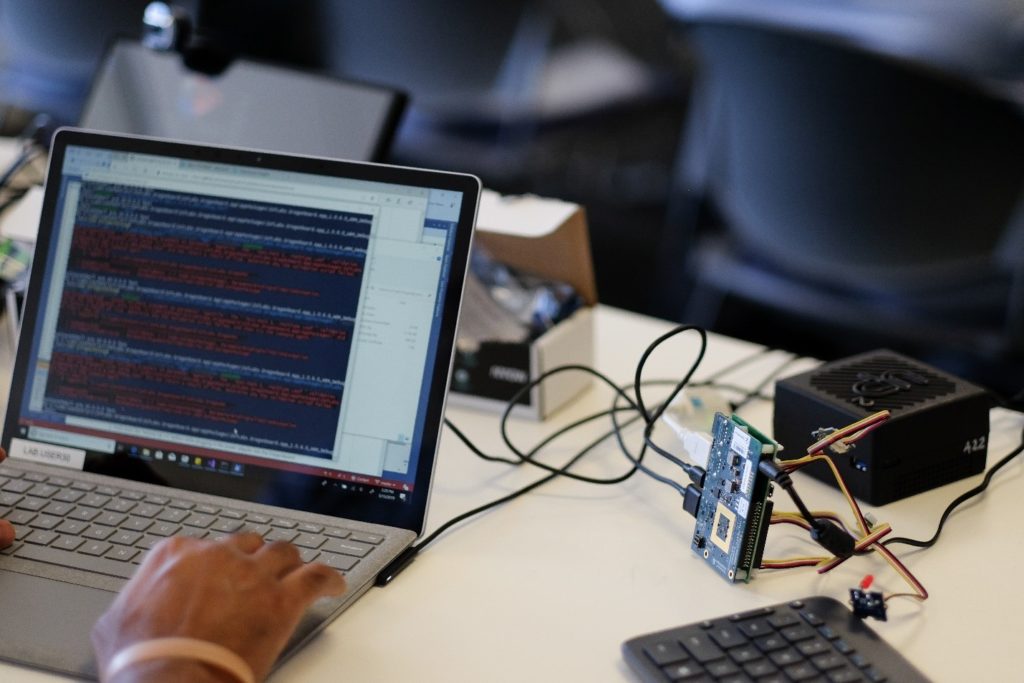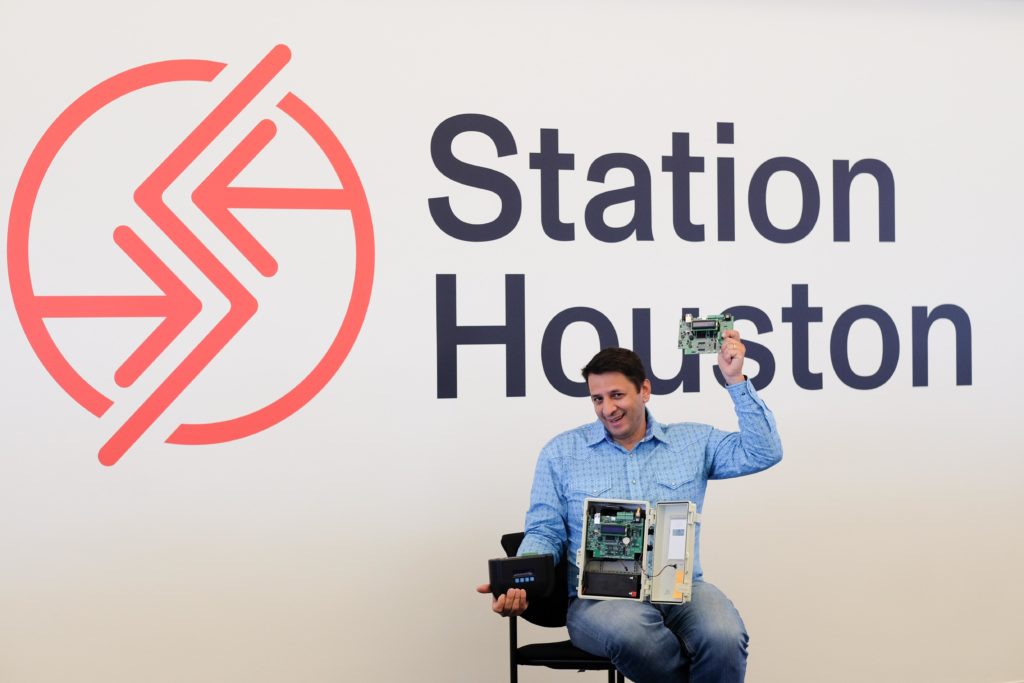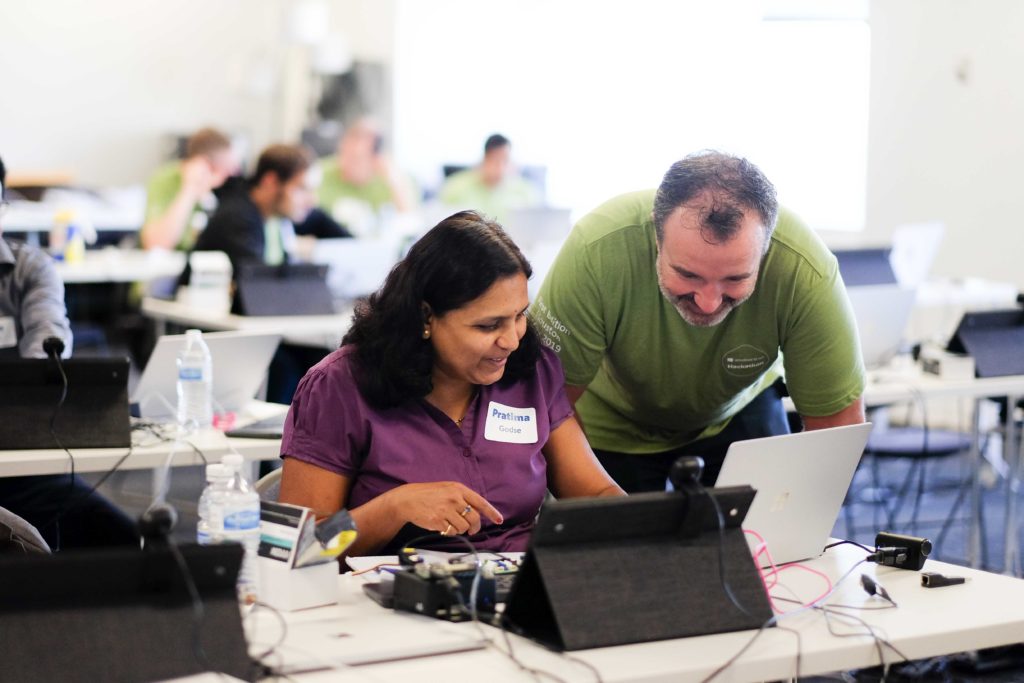Microsoft IoT Hackathon accelerates solutions across industries

Houston, Texas, has become a hub for digital innovation, making it the ideal location for the Microsoft IoT Hackathon that took place May 13-15. Fed by a competitive university system, Houston’s growing engineering and IT talent base is leading disruption in the manufacturing, energy and life sciences sectors. The City of Houston is also partnering with Microsoft to realize a smart city agenda with the goals of improving the effectiveness of city employees, streamlining transportation and better connecting citizens to local services, especially during emergencies.
Houston’s journey to work with Microsoft and its partners in leveraging the cloud for digital transformation and building repeatable Internet of Things (IoT) solutions was brought to life during the recent IoT in Action event on April 16, which featured Mayor Sylvester Turner as a keynote speaker. The success of this event with 700+ attendees was not the only reason Microsoft chose to host a hackathon in the City of Houston. We also saw it as an opportunity to provide startups and developers with the tools and resources they need to innovate and bring their IoT concepts to life—all in a city that is committed to its own IoT journey.
Read on as I share some of the topics explored during the hackathon, as well as examples of the IoT solutions being developed and built on Azure IoT and Windows 10 IoT.
Hacking for a more connected future
Our core focus for the hackathon was to help attendees explore how they can use these IoT capabilities and create solutions that enable a more seamless experience between the physical and digital worlds. We were joined by 15 attendees from 13 different companies within the broader Houston area. All came with a concept in mind and looked to explore Microsoft IoT solutions for industries like farming, warehousing, interior horticulture, manufacturing, energy, transportation, public safety, smart cities and traffic logistics.
Zan Gligorov from OrgPal was one of the attendees. OrgPal is a Houston-based smart automation and telemetry company focused on specialized IoT hardware and software solutions. Designed for use in the energy and smart city industries, OrgPal’s solutions focus on capturing field service and customer data for storage, analysis and management in the cloud or on premises. It also provides edge and end point hardware, along with the information gateway infrastructure that brings the data to your fingertips (on desktop, server and mobile devices). During the hackathon, Zan was able to find opportunities to include new data sources for OrgPal’s hardware offering and new predictive maintenance results to include on the telemetry solution, including environmental issues, equipment abuse and other typical issues. The solution explored in the hackathon uses Windows 10 IoT Core and connects with Azure IoT services.

Simplifying IoT development with Windows 10 and Azure IoT
IoT is a core strategy for driving better business outcomes, improving safety and addressing social issues. Yet for those just getting started, building and deploying IoT solutions can be expensive and time-consuming. Through Microsoft IoT Hackathons, our goal is to make it easier to quickly build secure, smart devices that leverage the intelligent cloud and harness the power of the intelligent edge.
Hackathon attendees can build and develop intelligent edge devices based on the Windows IoT family of operating systems, including:
- Windows 10 IoT Core – helps manufacturers get to market quickly with small-footprint devices that are secure, lower cost and built for the intelligent edge. Windows IoT Core provides a royalty-free OS for prototyping, developing and testing IoT devices.
- Windows 10 IoT Core Services – ensures long-term OS support and services for managing device updates and device health. Benefits include reduced operating costs with over-the-air updates that device manufacturers control for OS, apps and drivers—plus 10 years of OS security updates.
- Windows 10 IoT Enterprise – provides a binary-identical, locked-down version of Windows 10 Enterprise that delivers enterprise manageability and security to a broad range of IoT solutions across multiple industries. It shares all the benefits of the worldwide Windows ecosystem, including the same familiar application compatibility, development and management tools as client PCs and laptops.
- Windows Server IoT 2019 – securely handles the largest edge-computing workloads. Announced just this past February, Windows Server IoT 2019 brings the power of high-availability and high-performance storage and networking to the edge, addressing latency and connectivity requirements as well as enabling customers to maintain data on premises while securely storing and analyzing large amounts of data.
Those at the hackathon explored a variety of concept ideas using these technologies. For example, one attendee focused on enabling a better smart cities transportation solution. He used Windows Server IoT 2019 to quickly provide analysis and decision-making based on the data gathered from sensors attached to devices running Windows 10 IoT Core. Others explored connecting various devices running either Windows 10 IoT Core or Windows 10 IoT Enterprise to Azure IoT services with the goal of providing solutions in manufacturing, agriculture and energy.
Additionally, attendees received hands-on experience for connecting their devices into Azure IoT Hub, Azure IoT Central, Azure Time Series Insights and numerous other Azure IoT capabilities.

Fostering continued innovation in Houston
With the hackathon taking place in Station Houston – the city’s hub for innovation and entrepreneurship – we had the ideal setting to help participants explore new ideas or see how they could improve and harden proposed solutions as they move closer to commercialization. And all benefited from the detailed, hands-on technical training that established a common knowledge base from which the group worked.
Microsoft has been a key part of the City of Houston’s Smart City initiative and continues to invest through events like the hackathon to fuel additional innovation. As part of this investment, Microsoft is partnering with Intel to create the Ion Smart Cities Accelerator. The soon-to-be-converted 270,000-square-foot space in the emerging Midtown Innovation District will host pilot programs for companies developing Smart City technology. Currently, Station Houston is hosting the accelerator program.
Join us next time!
The Microsoft IoT Hackathons are an ideal opportunity to network with peers, demonstrate expertise, share best practices and insights, talk to subject matter experts and expand your skills. To join the fun, think about the concepts you want to work on and watch this space for announcements as we release future dates in coming months.
In the meantime, check out our global IoT in Action event series for learning opportunities coming to a city near you. And be sure to watch the on-demand webinar, Windows IoT: Business Transformation, to discover how Windows 10 IoT can help you get up and running quickly.
